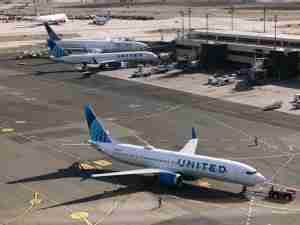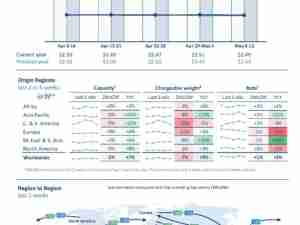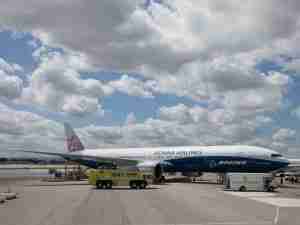Airline seat capacity in China dropped the most since early in the Covid-19 pandemic, as rising cases of the delta variant spurred fresh restrictions on movement.
The number of seats being offered by carriers plunged 32% in one week, accelerating a decline in the country that began at the end of July, based on data from aviation specialist OAG. China’s wobble sent global capacity to a weekly 6.5% slide, as comebacks stagnated in Europe and North America.
The surge in Chinese cases has dealt a blow to tourism on the mainland during the peak summer holiday. China, which for a time during the crisis overtook the U.S. as the world’s largest aviation market, is battling its broadest outbreak since the virus first emerged in the city of Wuhan in late 2019.
After starting in India, the delta variant spread to the U.K., interrupting its reopening plans, and is now putting recoveries in the U.S. and European Union at risk. Other Asian countries, such as Thailand and Vietnam, continue to struggle with outbreaks.
Globally, airline capacity now stands at 64% of pre-pandemic levels, after a 4-point slide versus 2019 in a single week. The U.S. was little changed, as was Europe, following rapid gains in June and July.
Like in China, the U.S. recovery has mainly been driven by a surge in domestic travel.
Despite a partial reopening with Europe, the U.S. has plateaued for almost two months as airlines struggle to re-establish capacity following deep cuts earlier in the pandemic. Last week, budget airline Frontier Airlines Holdings Inc. raised fresh concerns when it attributed softness in its bookings to the delta variant.
Transatlantic travel could be further restricted. The European Union is weighing reintroducing travel restrictions on visitors from the U.S. next week as coronavirus case numbers rise again, Bloomberg News reported on Friday.
Zero Tolerance
China’s latest resurgence, which began in the eastern city of Nanjing, has spread across more than half the country’s provinces and spurred tighter curbs on movement. Capacity in the country is now at its lowest compared with 2019 since the week of Feb. 8, when China was battling an outbreak at the start of the Lunar New Year holiday.
Air travel came back quickly after that bout, and Chinese health officials expect the current outbreak to be brought under control in two to three weeks if containment measures are fully enacted.
While the majority of the country’s vast population is vaccinated, a former health chief who is now a consultant to China Health Economics Association said in an opinion piece that the country will strictly control its borders to stop Covid-19 from gaining a foothold, and that the country will continue to try to stamp out the virus rather than “learning to co-exist” with it.
Hong Kong-listed Beijing Capital International Airport Co. issued a profit warning last week, saying it expects its net loss to widen to as much as 860 million yuan ($133 million) in the six months though June due to the pandemic’s impact on passenger throughput.











